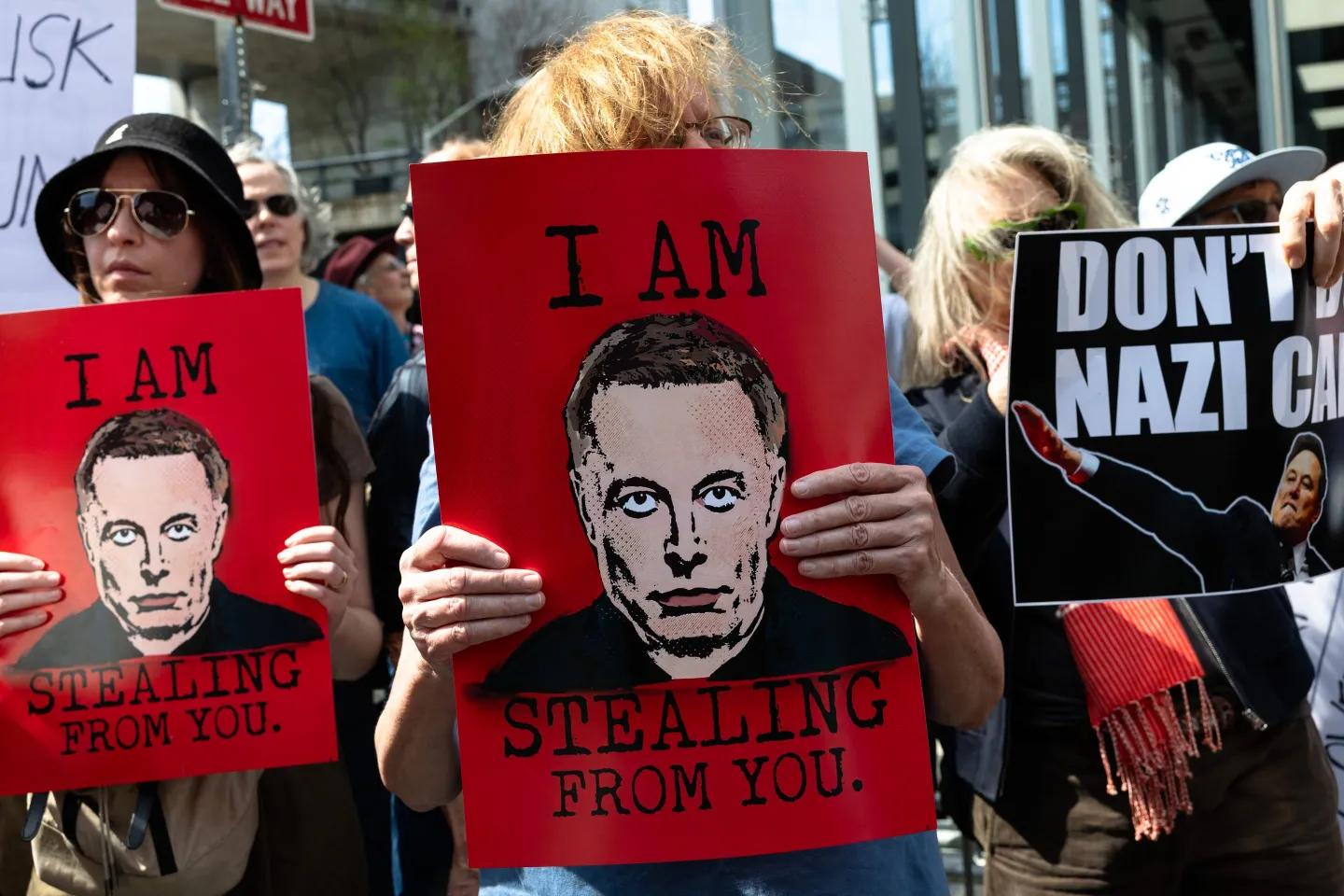As anti-Tesla demonstrations intensify across the United States and parts of Europe, the response from both Elon Musk and law enforcement has escalated dramatically. While protesters target Tesla properties in what they call the Tesla Takedown movement, authorities are deploying sophisticated surveillance techniques to identify and prosecute those involved in acts of vandalism against the electric vehicle maker.
Musk Calls for Arrests Beyond Vandals
Tesla CEO Elon Musk has intensified his response to the ongoing anti-Tesla protests, calling for law enforcement to arrest not just those directly involved in vandalism but also anyone allegedly funding these demonstrations. Following President Trump's declaration that vandalism targeting Tesla properties constitutes terrorism subject to federal prosecution, Musk expressed dissatisfaction with focusing solely on what he termed puppets and paid foot-soldiers, arguing that arresting individual perpetrators would be ineffective without targeting their financial backers.
Allegations of Orchestrated Protests
The Tesla CEO has specifically pointed fingers at wealthy Democratic opponents, including LinkedIn co-founder Reid Hoffman, whom he claims is 100% funding organizations attacking him and his company. Hoffman has repeatedly denied these allegations, suggesting that Musk is deflecting from his own problems. Former Wall Street Journal reporter Asra Nomani has fueled these suspicions by claiming to have found evidence that approximately two dozen tax-exempt groups aligned with the Democratic party are compensating protesters.
Advanced Surveillance Techniques in Action
Law enforcement agencies are employing sophisticated surveillance methods to track down individuals involved in attacks on Tesla properties. In a notable case from March, investigators tracked an alleged Tesla arsonist in Las Vegas using a combination of surveillance cameras, license plate readers, and controversial tower dumps from telecom companies. These tower dumps provided information on all mobile devices connecting to towers along the suspect's route, including the vehicle's onboard Wi-Fi system.
Legal Consequences and Terrorism Charges
The Justice Department under the Trump administration has taken a hard stance against those attacking Tesla properties, with Attorney General Pam Bondi explicitly stating that participants in what she termed domestic terrorism would face severe legal consequences. In the Las Vegas case, 36-year-old Paul Hyon Kim was charged with domestic terrorism after allegedly shooting at and throwing Molotov cocktails at Teslas.
Motivations Behind the Protests
The anti-Tesla demonstrations appear to have multiple motivations. In the United States, protesters are largely responding to Musk's role in restructuring government programs through the Department of Government Efficiency (DOGE), which critics claim is gutting essential services relied upon by millions of Americans. European protesters, meanwhile, are primarily reacting to Musk's support of far-right nationalist movements across the continent.
Impact on Tesla's Business
These protests come at a challenging time for Tesla, which is expected to report its worst quarterly car sales since Q3 of 2022. The company faces growing competition, particularly from Chinese manufacturers like BYD that are making significant market gains. The ongoing demonstrations and acts of vandalism against Tesla properties may be contributing to these business challenges, creating a complex situation where political controversy intersects with market competition.
 |
|---|
| Elon Musk discusses Tesla's business amidst ongoing protests and competition at the White House |
